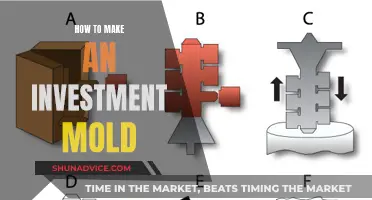
Paying off a mortgage early or investing extra cash is a common dilemma for many people. While paying off a mortgage early can bring peace of mind and save thousands in interest, investing can offer higher returns and the opportunity to grow your wealth. The best option depends on various factors, including an individual's financial situation, risk tolerance, and investment goals.
For example, if you have high-interest debt, such as credit card debt, it is generally recommended to prioritise paying that off first. Additionally, if you are approaching retirement, it may be more beneficial to focus on investing to grow your retirement savings. On the other hand, if you are a new homeowner, making extra mortgage payments can significantly reduce the total interest owed over the loan's life.
Ultimately, the decision to pay off a mortgage early or invest depends on a comprehensive evaluation of one's financial circumstances, risk appetite, and short-term and long-term financial goals.
| Characteristics | Values |
|---|---|
| Opportunity cost | Paying off a mortgage early can save you thousands in interest payments, but investing that money instead could yield higher returns. |
| Risk | Paying off a mortgage is a safer option as it's predictable and you know how much you're saving. Investing is riskier as markets fluctuate, but it could result in higher returns. |
| Mortgage stage | It's more beneficial to make extra payments at the start of a mortgage as your money is going towards the interest on the loan, not the principal. In the later years, you're paying more of the principal and less interest, so there's more room to focus on investing. |
| Savings | Paying off a mortgage by dipping into your savings can be a good decision, but only if you have enough liquid assets left over to cover your needs and any unexpected expenses. |
| Interest rate | Mortgages often have low-interest rates, so if your interest rate is low, it may be better to focus on investing. If your interest rate is high, it's usually better to prioritise paying off the mortgage. |
| Emotional decision | Some people are uncomfortable with the idea of heading into retirement with debt, but this shouldn't be the main driving force behind your decision. |
What You'll Learn

Paying off mortgage early vs investing: which is best?
Paying off mortgage early vs investing: which is best?
Overview
There are pros and cons to both paying off your mortgage early and investing your money. It's a complex decision that depends on your financial situation, risk appetite, and life goals.
Paying off your mortgage early
Pros
- Interest savings: You could save thousands in interest payments.
- Peace of mind: Being debt-free can ease your financial burden and anxiety.
- Build equity: Paying down your mortgage faster means building equity in your home, which can help you qualify for refinancing.
Cons
- Opportunity cost: Putting extra money towards your mortgage means you can't use it for other financial goals, like retirement savings or emergency funds.
- Wealth is tied up: Property is an illiquid asset, so accessing your money in an emergency or investment opportunity would be challenging.
- Loss of tax breaks: You may lose out on tax deductions for mortgage interest if you normally itemize.
Investing
Pros
- Higher returns: Historically, the average annual return for stocks has been higher than mortgage rates.
- Liquid investment: Unlike property, stocks, bonds, and other market investments can be easily sold and converted to cash.
- Employer match: Investing in a retirement account may come with an employer match, giving you additional funds.
Cons
- Higher risk: The stock market is volatile, and some investments carry the risk of losing your money.
- Increased debt: If you invest, you'll still have debt in the form of your mortgage.
A balanced approach
You don't necessarily have to choose between paying off your mortgage and investing. You can do both by allocating your funds across these goals. For example, you could make biweekly mortgage payments and invest any year-end bonuses or tax refunds.
Key considerations
- Mortgage interest rate: If your interest rate is high, it may be more beneficial to pay off your mortgage first. Conversely, if your rate is low, investing may be a better option.
- Risk tolerance: Evaluate your comfort with risk. Paying off your mortgage is generally safer and more predictable, while investing comes with the potential for higher returns but also carries more risk.
- Timeframe: Consider how long you plan to stay in your home and how close you are to retirement. If you're nearing the end of your mortgage or plan to move soon, investing may be more advantageous.
- Financial goals and discipline: Assess your financial priorities and your ability to stick to your investment plan. If you're saving for retirement, college funds, or have other financial goals, investing may be a better choice.
The decision to pay off your mortgage early or invest depends on various factors, including your financial situation, risk tolerance, and goals. Both options have their advantages and disadvantages, so it's essential to carefully evaluate your circumstances before making a decision.
Consulting a financial advisor can help you analyze your personal situation and make an informed choice that aligns with your objectives.
Monetary Policy: Investing and Saving Explained
You may want to see also

Pros and cons of paying off mortgage early
Pros and Cons of Paying Off a Mortgage Early
Paying off a mortgage early has its benefits, but there are also some drawbacks. Here are some pros and cons to consider:
Pros
- Interest savings: One of the biggest benefits of paying off a loan early is the amount of money saved on interest payments. This could amount to thousands or tens of thousands of dollars.
- Peace of mind: Being debt-free can ease anxiety and the burden of constant debt. In the case of a financial emergency, there is no worry of missing mortgage payments and the risk of foreclosure is eliminated.
- Build equity: Paying down a mortgage faster means building equity in the home more quickly, which can help with refinancing for better rates. It also allows for leveraging equity in the form of a home equity loan or line of credit, which can be used to make improvements that increase the home's value.
Cons
- Opportunity cost: Putting extra money towards paying off a mortgage early means that money is not being used for other financial goals, such as retirement savings, emergency funds, or other higher-return investments.
- Wealth is tied up: Property is an illiquid asset, meaning it cannot be quickly or easily converted to cash. In the case of a financial emergency or an attractive investment opportunity, the house would need to be sold, which could take time.
- Loss of some tax breaks: Paying down a mortgage instead of contributing to tax-advantaged retirement accounts means giving up certain tax savings. Additionally, there may be a loss of tax deductions for mortgage interest if itemizing deductions.
Saving-Investment Model: Understanding the Economics of Macro Theory
You may want to see also

Pros and cons of investing
Investing your extra cash instead of paying off your mortgage early has several benefits and drawbacks. Here are some of the main pros and cons to consider.
Pros of Investing
- Higher returns: The stock market has historically provided higher returns than the interest rates on mortgages.
- Liquid investment: Stocks, bonds, and other market investments can be easily sold and converted to cash if needed.
- Employer match: If you invest in a retirement account and your employer offers a match, you can benefit from compound earnings on this additional free money.
Cons of Investing
- Higher risk: The stock market is more volatile than the housing market, so you need to be prepared for potential losses.
- Increased debt: If you're not comfortable with the idea of debt, investing may not be the best option as you will still owe money on your mortgage.
Creating Investment Portfolio Projections: A Comprehensive Guide
You may want to see also

How paying off a home affects your finances
Paying off your mortgage early can have a significant impact on your finances, offering both benefits and drawbacks. Here are some key points to consider:
Benefits of paying off your mortgage early:
- Interest savings: This is one of the most significant advantages. By paying off your mortgage early, you can save thousands or even tens of thousands of dollars in interest payments. This represents a guaranteed return on your investment.
- Peace of mind: Being debt-free can provide a sense of financial freedom and reduce stress. If you experience financial difficulties, not having a mortgage payment to worry about can be a huge burden lifted.
- Build equity: Paying down your mortgage faster allows you to build equity in your home more quickly. This can be advantageous if you decide to refinance or take out a home equity loan or line of credit.
Drawbacks of paying off your mortgage early:
- Opportunity cost: Putting extra money towards your mortgage means you have less money available for other financial goals, such as retirement savings, emergency funds, or other investments with potentially higher returns.
- Wealth is tied up: Property is an illiquid asset, meaning it cannot be quickly or easily converted into cash. If you need cash for an emergency or investment opportunity, selling your house may not be a feasible option.
- Loss of tax benefits: In some cases, paying off your mortgage early may result in losing certain tax benefits, such as mortgage interest deductions.
Ultimately, the decision to pay off your mortgage early depends on various factors, including your financial situation, risk tolerance, and retirement plans. Consult with a financial advisor to determine the best course of action for your specific circumstances.
Invest India: Adding Value with Innovation and Expertise
You may want to see also

How investing affects your finances
Investing your money in the financial markets can have a significant impact on your finances. Here's how:
Potential for Higher Returns
Investing in the stock market or other financial instruments can offer the potential for higher returns compared to simply paying off your mortgage early. Historically, the average annual return for stocks has been around 8%, and some investments may provide even higher returns over the long term. These higher returns can help your money grow faster and potentially outperform the interest saved by paying off your mortgage early.
Compound Interest
When you invest, your money earns interest, and that interest itself earns interest over time, known as compound interest. This effect is more pronounced the longer you invest, and it can significantly increase your overall returns. For example, investing $100,000 for 10 years at an average rate of return of 5% would result in approximately $62,889 in investment gains.
Liquidity
Investing provides you with more liquidity compared to paying off your mortgage early. If you invest in stocks, bonds, or other marketable securities, you can easily sell and access your money if needed. In contrast, your money is tied up in your home if you pay off your mortgage early, and converting it back into cash can be a lengthy process.
Risk and Volatility
It's important to remember that investing comes with risk, and the stock market can be volatile. There is a possibility of losing some or all of your invested money if the market declines. Different investments carry different levels of risk, and it's essential to consider your risk tolerance and investment horizon when making investment decisions.
Opportunity Cost
By investing, you may be forgoing the opportunity to save money by paying off your mortgage early. Paying off your mortgage early can result in significant interest savings, especially if you have a high-interest-rate mortgage. Carefully consider the potential interest savings versus the expected investment returns when deciding between these options.
Tax Implications
Investing may provide tax advantages or disadvantages depending on your specific situation. For example, investing in a retirement account may offer tax benefits, such as tax-deductible contributions or tax-free growth, depending on the type of account. On the other hand, investing in a taxable brokerage account may trigger capital gains taxes when you sell investments at a profit.
Worthwhile Investments: Share Counts and Strategies
You may want to see also
Frequently asked questions
Investing in the financial markets may generate higher returns than the interest cost of a loan. The average annual rate of return for stocks is 8%, but there is a chance of losing money. The money you invest in the markets will earn interest, and the interest will earn interest, for a longer period of time.
Paying off your mortgage early saves you thousands or tens of thousands of dollars in interest payments. It also gives you peace of mind and helps you build equity in your home.
It depends on your risk tolerance, how far along you are in your mortgage payments, your mortgage interest rate, and your financial situation. Consult a financial planner and a tax advisor to analyze your personal situation and goals.







